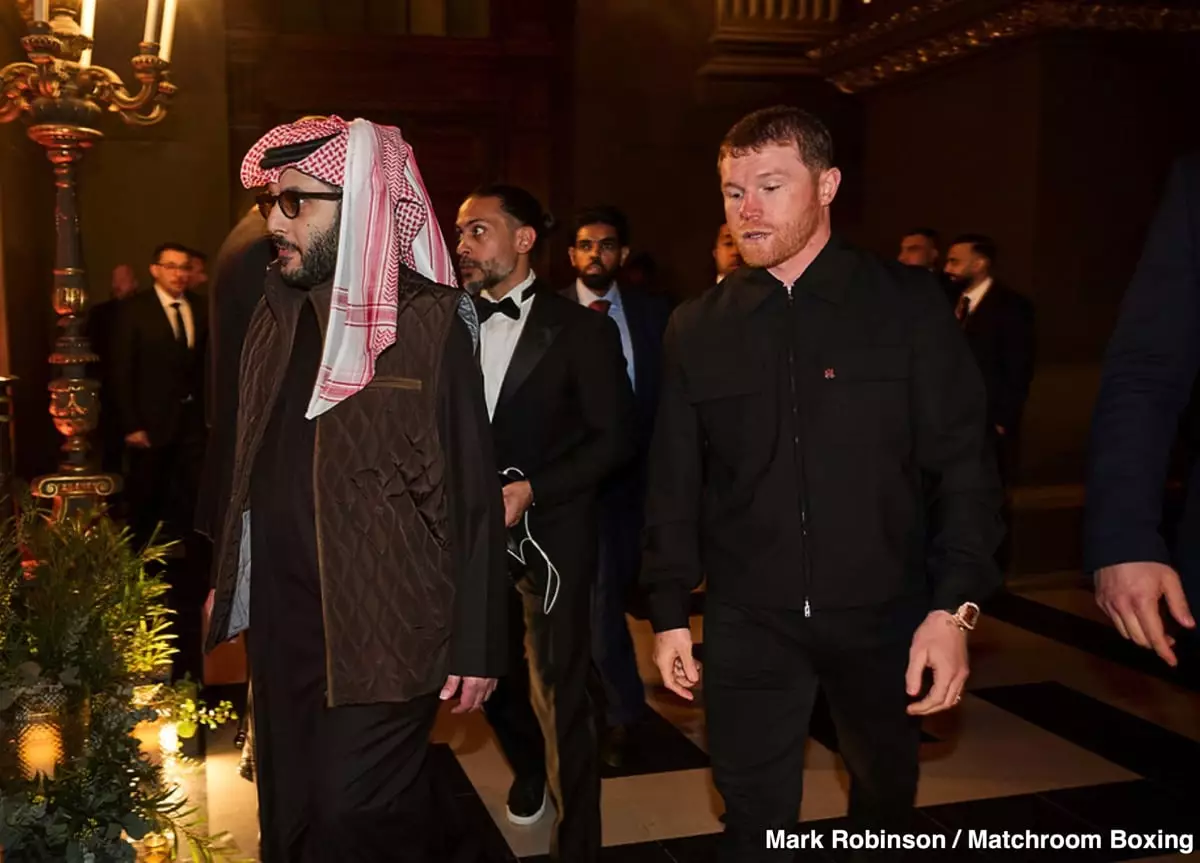Canelo Alvarez stands on the brink of reshaping the boxing world not just through titles, but through staggering financial triumphs. With an upcoming bout against William Scull on May 3rd in Riyadh, followed by a high-stakes clash with Terence Crawford in September, Canelo’s financial landscape is set to balloon. As Mikey Garcia recently pointed out, the Mexican icon’s net worth could skyrocket to an incredible $400 million. Not only does this indicate Alvarez’s prowess in the ring, but it also underlines a shift in the motivations of modern boxers.
Canelo’s existing record of 62 victories, 39 of which were delivered via knockout, illustrates a career already filled with extraordinary accomplishments. However, as Garcia notes, titles seem to have become secondary. Canelo has navigated the treacherous waters of boxing’s elite, snatching accolades and belts, but now he ventures into a new financial territory that could define his legacy.
Transition from Glory to Green
Mikey Garcia’s insights reveal a fascinating truth about modern boxing—champions like Canelo no longer view their careers through the narrow lens of titles alone. Instead, the financial potential of a fight can overshadow traditional accolades. For Canelo, it appears that the thrill of competition has been superseded by the allure of generational wealth. Garcia elaborated, indicating that this is not merely about personal ambitions; it’s about securing a legacy for future generations.
“This extra $200 million or $400 million he’s going to make is going to set up his grandkids,” Garcia stated. It’s a poignant reminder of the relentless grip of financial ambition in sports today. Canelo’s journey from an impoverished background to a multi-hundred-millionaire athlete stands testament to what modern boxing represents—an opportunity not just for individual glory but wealth accumulation.
The Saudi Sports Surge
The impact of investments from the Saudi regime in boxing cannot be overstated. With massive financial backing, fights now have more at stake, not just for the fighters but also for the burgeoning sports entertainment market in the Middle East. If Canelo Alvarez extends his agreement with the Riyadh Season, he will open the door to a series of lucrative matches that could further elevate his net worth.
The proposed challenge of taking on top fighters like Dmitry Bivol, Artur Beterbiev, and David Benavidez further illustrates the financial gamble involved. These matches are high-risk; however, the potential rewards are astronomical. Canelo’s willingness to engage with the best fighters in such circumstances signals a redefinition of what it means to be a champion in today’s boxing world.
The 168-Pound Showdown: Canelo vs. Crawford
As Canelo prepares for his monumental face-off against Terence Crawford, the fight is positioned as an epic clash not merely for titles, but also for the prestige of being among the highest earners in boxing history. Garcia predicts that despite Crawford’s superior boxing skills and potential for strategy, Canelo’s strength may prevail.
This narrative captures the essence of what makes boxing powerful—a mental and physical chess match infused with the backdrop of financial stakes so high that they redefine legacy. There is a palpable tension surrounding this matchup, amplified by the compelling story of two fighters from distinctly different backgrounds coming together for such immense stakes.
A Shift in Motivations and Impacts
The evolution in boxer’s motivations from winning titles to securing lucrative contracts reflects a broader trend not just in boxing, but across professional sports. As financial opportunities expand, the line between sportsmanship and business aspirations grows increasingly blurred. This phenomenon raises questions about the authenticity of competition when financial motivations overshadow the honor of winning.
Canelo Alvarez may be at the forefront of this change, positioning himself as a trailblazer in a new era of boxing where the brightest lights are less about titles and more about wealth generation. Canelo’s impending bouts may serve as not just contests of skill, but also as critical markers in the transformation of how modern athletes view their careers—a reckoning where legacy, finance, and athletic ability intersect in unprecedented ways.


Leave a Reply